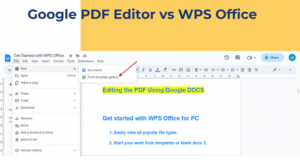
With increasing concerns about climate change and environmental sustainability, businesses in the UK are now more focused than ever on adopting greener practices. One significant step towards reducing carbon footprints and promoting a cleaner environment is transitioning to green energy sources. In this article, we will explore the importance of green energy adoption for businesses, the current state of green energy in the UK, and how business electricity comparison can be a valuable tool in this transition.
The Importance of Green Energy for Businesses
- Environmental Benefits
Green energy, also known as renewable energy, is generated from sources that are naturally replenished and have a lower impact on the environment. Unlike fossil fuels, which release harmful greenhouse gases, renewable energy sources like wind, solar, hydro, and biomass produce little to no emissions. By switching to green energy, businesses can significantly reduce their carbon footprint and contribute to combating climate change.
- Sustainability and Long-Term Savings
Adopting green energy is not only beneficial for the planet but also for businesses’ financial sustainability. While the initial investment in renewable energy infrastructure may seem daunting, the long-term savings can be substantial. Renewable energy sources are infinite, and once the infrastructure is in place, businesses can benefit from stable and predictable energy costs, shielding them from fluctuations in fossil fuel prices.
- Enhanced Corporate Social Responsibility (CSR)
Embracing green energy demonstrates a commitment to corporate social responsibility. Companies that prioritize sustainable practices and reduce their environmental impact are often viewed more favorably by customers, investors, and the public. A strong CSR profile can improve a company’s reputation, attract eco-conscious customers, and drive positive brand sentiment.
The Current State of Green Energy in the UK
- Renewable Energy Targets
The UK government has set ambitious renewable energy targets to transition to a low-carbon economy. The legally binding target requires the UK to achieve net-zero greenhouse gas emissions by 2050. To accomplish this goal, the UK aims to generate at least 70% of its electricity from renewable sources by 2030.
- Growth in Renewable Energy Production
Over the past decade, the UK has made significant progress in increasing its renewable energy capacity. The country has diversified its energy mix by investing in wind, solar, and hydroelectric projects. Offshore wind farms, in particular, have experienced rapid growth and have become a crucial part of the UK’s renewable energy landscape.
- Supportive Government Policies
The UK government has implemented several policies and incentives to encourage businesses to adopt green energy. This includes the Contracts for Difference (CfD) scheme, which provides financial support to renewable energy projects, as well as tax incentives and grants for businesses investing in renewable energy infrastructure.
Challenges in Switching to Green Energy
- Initial Costs
One of the primary barriers for businesses looking to switch to green energy is the high initial costs associated with renewable energy infrastructure installation. While the long-term savings are substantial, the upfront investment can be challenging for small and medium-sized enterprises (SMEs).
- Energy Storage
Unlike conventional power plants, renewable energy sources are intermittent and dependent on weather conditions. This intermittency poses challenges in maintaining a consistent energy supply. Energy storage solutions, such as batteries, are essential to store excess energy during peak generation periods and release it during low generation periods.
- Grid Integration
The integration of renewable energy into the national grid is a critical aspect of the transition to green energy. Ensuring that the grid can handle fluctuations in supply and demand from renewable sources is essential to maintain a stable and reliable energy supply.
How Business Energy Comparison Can Help
- Identifying Green Energy Suppliers
Business energy comparison platforms can help identify energy suppliers that offer green energy plans. These plans often include electricity generated from renewable sources, making it easier for businesses to make the switch.
- Understanding Tariffs and Costs
Business energy comparison tools allow companies to compare different energy tariffs and costs from various suppliers. This enables businesses to find the most cost-effective green energy options tailored to their needs.
- Transparent Information
Energy comparison platforms provide transparent information about suppliers’ environmental credentials and the sources of their energy. This empowers businesses to make informed decisions that align with their sustainability goals.
- Simplified Switching Process
Switching to a new energy supplier can be a complex process, but business energy comparison platforms streamline the process and handle administrative tasks, making it hassle-free for businesses to transition to green energy.
The Role of Government and Incentives
- Government Support for Renewable Energy
The UK government plays a critical role in promoting the adoption of green energy by providing support and incentives to businesses. Besides setting renewable energy targets, the government has implemented various policies to encourage businesses to transition to green energy. These policies include the Feed-in Tariff (FiT) scheme, which provides financial incentives to businesses that generate their own renewable energy and export surplus back to the grid. Additionally, the Renewable Heat Incentive (RHI) offers financial support to businesses that use renewable heating systems.
- Business Energy Efficiency Measures
Alongside the switch to green energy, the government encourages businesses to improve their energy efficiency. Implementing energy-saving measures can complement the use of green energy, leading to further reductions in carbon emissions and energy costs. Businesses can benefit from government-backed initiatives that offer guidance and funding for energy-efficient upgrades, such as LED lighting installations, insulation improvements, and energy-efficient heating and cooling systems.
Overcoming Barriers and Ensuring a Greener Future
- Collaboration and Knowledge Sharing
Overcoming the challenges associated with green energy adoption requires collaboration among businesses, energy suppliers, and government entities. Knowledge sharing and experiences from early adopters can benefit others considering the transition. Collaboration also fosters innovative solutions, such as shared energy storage facilities, that address intermittent energy supply issues.
- Investment in Research and Development
Continued investment in research and development (R&D) is essential for advancing renewable energy technologies and addressing current limitations. R&D efforts can lead to more efficient energy storage solutions, improvements in grid integration, and the development of innovative renewable energy sources that further diversify the energy mix.
Driving Positive Change Through Green Energy
Switching to green energy is not just an environmental imperative but a smart business decision for companies in the UK. The benefits of adopting renewable energy, including reduced carbon emissions, long-term cost savings, and enhanced corporate social responsibility, are increasingly clear. As the UK continues its journey towards a low-carbon future, business energy comparison platforms serve as valuable tools, aiding businesses in finding green energy suppliers and facilitating the transition process. By leveraging government support, embracing energy efficiency measures, and promoting collaboration and innovation, businesses can play a significant role in ensuring a greener, more sustainable future for the UK and the world.

